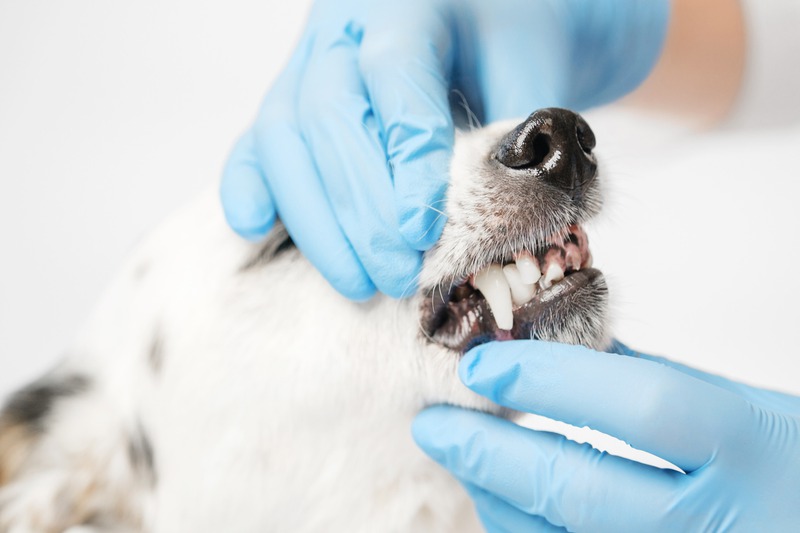Welcome to a journey through the realm of pet dental health, where we’ll unravel the mysteries of common dental diseases that beset our furry friends and the repercussions they hold. As pet parents, we all want the best for our little companions, and understanding the nuances of their dental needs is a crucial part of their overall health. Let’s explore this topic through the lens of compassion and expertise, offering insights that could help keep your pet smiling brightly.
About Pet Dental Health
Just like us, our pets can suffer from a range of dental diseases, which, if neglected, can lead to significant discomfort and serious health complications. Our companions rely on us to spot the signs that something might be amiss. From bad breath to difficulty eating, the signals are there if we know what to look for. But what exactly goes on inside those mouths?
The Role of a Veterinary Dentist
When it comes to protecting our pet’s pearly whites, a veterinary dentist becomes our ally. These experts in comprehensive pet dental care are equipped to diagnose and treat various conditions that affect our pet’s oral health. With their help, we can tackle these issues head-on and restore our fur babies’ smiles.
Common Dental Conditions in Pets
Pet owners often witness their pets chewing avidly on toys and treats, but beneath the surface, several common dental maladies might be lurking. Let’s delve into some of these conditions:
Periodontal Disease
The stalker of the dental world, periodontal disease, is the leading cause of oral distress in pets. It starts with plaque – that clingy film you’re familiar with from your dental visits – which can harden into tartar. Without regular cleaning, this build-up irritates the gums, possibly leading to:
-
Red, swollen, or bleeding gums
-
Receding gums, potentially exposing the roots of the teeth
-
Ongoing pain that might not be immediately obvious
-
Tooth loss if the support structures of the teeth become compromised
Tooth Decay and Cavities
Cavities, also known as caries, are less frequent in pets than in humans but can still occur. A cavity is a result of the tooth enamel decaying, leading to holes or pits in the teeth. This can be particularly painful for pets and might result in:
-
Visible holes or brown spots on the teeth
-
Unwillingness to eat due to pain
-
Potential for infection if left untreated
Broken Teeth
Physical trauma or chewing hard objects can cause broken teeth in pets. These fractures can expose the sensitive inner pulp, leading to acute pain and even abscesses.
The Effects of Dental Diseases on Overall Health
It’s not just about the mouth. Dental diseases can have far-reaching implications on your pet’s entire well-being. From heart disease to organ damage, the impact of poor dental health can be profound:
Spread of Infection
Infections in the mouth can easily enter the bloodstream and travel to various organs, where they can cause significant harm.
Pain and Discomfort
Oral pain can diminish your pet’s quality of life, affecting their behavior and overall happiness.
Weight Loss and Nutritional Deficiencies
Pain while eating can lead to weight loss and malnutrition, as pets might eat less or not be able to consume a nutritionally balanced diet.
Preparing Your Pet for Dental Surgery
In some cases, vet surgery in Carrollton, GA, for example, becomes a necessary approach to resolve severe dental issues. Surgical procedures can range from extractions to repair of jaw fractures and even root canals.
If surgery is on the cards, we need to ensure our pets are ready. Here’s a quick rundown of what to expect:
-
A thorough pre-operative assessment, including blood work
-
Fasting the night before the procedure
-
A discussion with the vet about post-operative care and pain management
Puppy and Kitten Veterinary Care
Early dental care is fundamental for youngsters to set the stage for a lifetime of health. As vets in Carrollton for kittens can attest, introducing kittens and puppies to proper dental practices early on is key.
Starting dental care early in a pet’s life can prevent many of these issues from ever taking root. Your vet can guide you through the process, from regular brushings at home to professional cleanings.
Maintaining Your Pet’s Dental Health
Preventive care is the bedrock of maintaining dental health in pets. Here are some practical steps you can engage in to keep those tails wagging and purrs coming:
-
Regularly brushing your pet’s teeth with pet-safe toothpaste
-
Providing dental toys and chews to help manage plaque and tartar
-
Feeding your pet a diet that promotes dental health
-
Keeping up with regular veterinary check-ups and cleanings
Recognizing Dental Distress Signals
You know your pet best. Keep a lookout for subtle signs that might indicate dental discomfort:
-
Changes in eating habits or preferences
-
Persistent bad breath
-
Pawing at the mouth or rubbing the face against the ground
-
Sudden aggression or irritability due to pain
Final Thoughts
We have journeyed through the realm of pet dental health, uncovering the common adversaries and their effects on our cherished companions. As we’ve seen, the ripple effects of dental ailments touch more than just the mouth – they can truly affect your pet’s joy and vitality.
With the support of professionals like veterinary dentists, the path to recovery and prevention becomes clearer. Remember, our vigilance and proactive care can make all the difference. Let’s keep embracing those furry grins with the knowledge that behind every smile is the mark of our love and commitment to their well-being.


